The workplace is unsettling for many people right now. Organizations have the technology and processes for remote and hybrid work in place, but many overlooked necessary changes to their culture. When that’s the case, the work experience ranges from unsatisfying to dysfunctional. No wonder we’re seeing a wave of resignations. 4.3 million people gave their notice in August, according to new data from the Department of Labor—that’s up from the previous all-time peak back in April.
McKinsey researchers learned that the top two reasons cited by employees for leaving (or for considering that decision) were:
• They didn’t feel their work was valued by the organization. (54%)
• They lacked a sense of belonging at work. (51%)
After 18 months of the pandemic, people are hungry for purpose and belonging in their professional lives. If they can’t find it at work, many hope to find it in a new job. But what if they can find what they seek at your association?
Show industry professionals a pathway to the meaning and purpose they seek
Do employers and industry professionals know the extent of your association’s education and credentialing programs? Don’t assume they do. Kick up your marketing efforts so HR and training departments, C-suites and managers, and non-members (especially) are aware of your programs.
Develop learning and career pathways that help people visualize a plan to achieve their professional goals and aspirations. Consider offering coaching services that help professionals decide on the right path. Allow them to earn micro-credentials along the pathway so they can validate their mastery of competencies.
As you develop and tweak learning programs and credentials, tap into a diverse range of viewpoints so the personal opinions of a small group of members don’t have undue influence on planning. Education advisory groups are a great way for members to make meaningful contributions to the association and their profession/industry. Advisory groups representing different audience segments help you understand the needs, challenges, and interests of your entire market.
A remote workplace offers few opportunities for learning by osmosis. Early-career professionals can’t overhear conversations, watch interactions, stumble into helpful discussions, or model their behavior on what they see around them. Informal mentorships are difficult to develop.
Find ways for members to help solve these problems and make a difference as volunteers. Encourage them to serve as educational coaches or mentors to professionals five or ten years behind them on the career pathway. Invite them to participate in online course discussions as special guest speakers or discussion moderators. Ask them to lead an occasional study group session for credential applicants or participate in a discussion group for members who are behind them on the career ladder.

Offer online learning programs that provide a sense of belonging and community
Many remote workers, especially new employees, miss the feeling of camaraderie and belonging they had in the office. They want people to get to know them as they get to know others in their company. Many lament the loss of exposure to new ideas and people.
In this environment, networking has become even more essential for everyone, especially young or new industry professionals who find it difficult to get noticed at work and develop relationships with peers and potential mentors.
These learning programs offer a sense of belonging and community.
• Discussion groups for young professionals, mid-career professionals entering a new industry or profession, and other membership segments or interest groups.
• Cohort-based online courses during which a group of learners spends two months advancing through content together in a mix of live active learning and asynchronous learning.
• Peer advisory groups who meet regularly to informally learn from and hold each other accountable to their goals.
• Other group learning events like solution rooms, ideation sessions, lunch and learns, coffee breaks, masterminds, and hackathons.
Perhaps this is a ripe opportunity for a new affinity program, like co-working space discounts, since young professionals often lack a dedicated working space. They get some peace and quiet along with the chance to mingle with other professionals.
Build more time for conversations into education programs and conferences. Discussion forums are an essential element of any online course curriculum, not just a supplement. We agree with Amanda Kaiser of Kaiser Insights who suggests providing structure to your in-person and online networking events. Don’t just throw people into a room together, give them something to do while they’re in there.

Offer the informal learning that the remote workplace lacks
In this economy, everyone must constantly update their skills and knowledge to remain relevant, employable, and promotable. Countless research studies talk about the desire, especially among younger generations, for employers who provide professional growth and development opportunities.
According to the OECD, about 70% of workers normally engage in informal learning through interaction with colleagues over a 12-month period, compared with 41% who engage in non-formal learning (employer-provided training) and 8% who train towards a formal qualification. During the pandemic, participation in informal learning decreased by an average of 25%, and in employer-provided training by 18%.
Make sure employers are aware of the educational programs you offer that can supplement or replace informal and corporate training programs. Work with an employer advisory group to develop new programs, such as remote workplace management. Employers need to learn how to encourage interaction and sharing among employees, provide informal learning opportunities, and build a learning culture.
Culture redesign is a huge need and challenge right now. Help industry employers learn how to establish healthy work routines, boundaries, and communication protocols, and eliminate bias in hybrid workplaces.
Employees must learn how to look out for themselves in a remote or hybrid workplace, for example, by demonstrating their value, exhibiting their talents and accomplishments, and building support for their ideas. Everyone needs wellbeing education on healthy work habits and routines, such as work/life boundaries.
This learning gap is crying out to be filled, and your association is well positioned to answer that call. Your education programs can give people the sense of purpose and belonging that many of them seek but are no longer finding at work.






